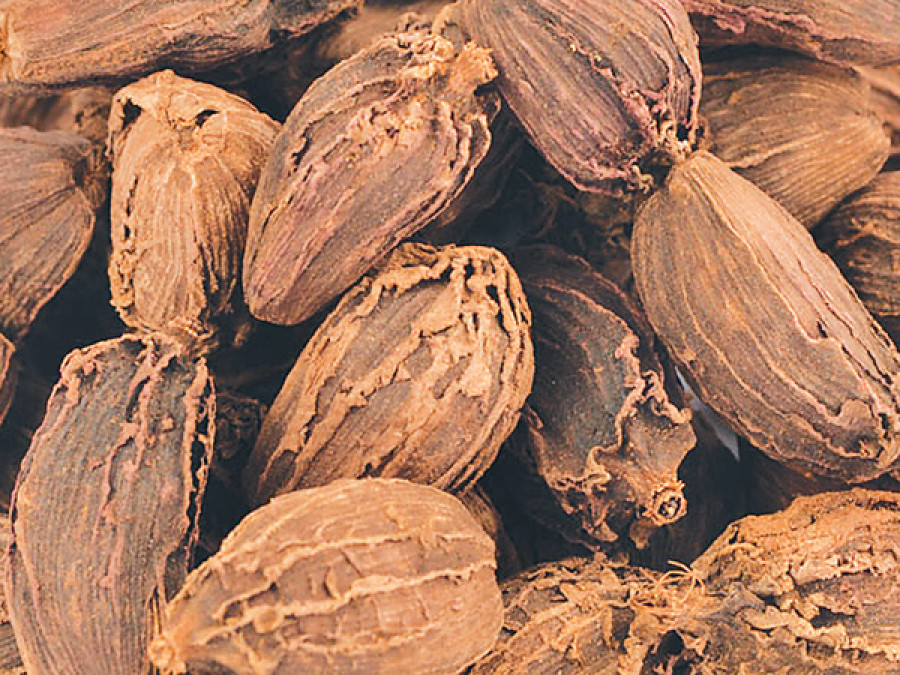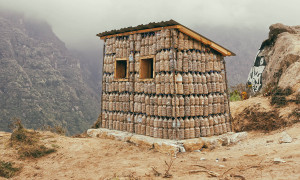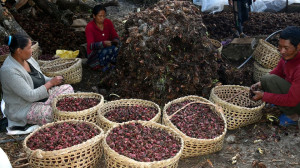Money
Nepali black cardamom set to get trademark
Nepali black cardamom, which is being exported to third countries under Indian brand names, is set to get its own trademark.
Aash Gurung
Nepali black cardamom, which is being exported to third countries under Indian brand names, is set to get its own trademark.
The high revenue yielding product will be identified as “Everest Big Cardamom” in international market, traders said. “We are preparing to register the trademark,” said Nirmal Bhattarai, president of Large Cardamom Entrepreneur’s Association. “Businessmen submitted working guidelines as ‘code of conduct’ to the Department of Industry in the last fiscal year. There is a proposal for adopting an international trademark in the documents submitted.”
According to Giri, although the government has prepared a policy on cardamom in the National Trade Integration Strategy, international branding of Nepali cardamom is yet to be done. As per the association’s data, Nepal produces a minimum of 5,000 metric tonnes of cardamom every year. Total exports to India amount to Rs6 billion.
Traders complained they have to face difficulties in marketing the product internationally in absence of a “board”. “The government should form a cardamom board like the National Tea and Coffee Development board,” said Om Krishna Bimali, general secretary of the association. “After the formation of a board, we will be able to sell the product as per international demand, not only India’s.”
Currently, cardamom is exported to India through trade routes in the Eastern region. After that, the product is traded in the international market under Indian brand names. “The process to adopt a trademark is in final stages,” said Bhattarai. “After obtaining the trademark, cardamom produced in Lamjung will be traded in the international market under the Nepali brand name for the first time.”
Raj Kumar Karki, vice-president of the association, said the farmers have not been able to secure profits in line with investments because of the government’s impractical tax policies. “The government should bring a loan policy to support farmers until their harvests materialise,” Karki said. “The government will also benefit from proper marketing of the product.”
According to the Association, more than 60 percent of the global cardamom consumption is supported by produces from Nepal. At present, 33 districts are commercially harvesting cardamom and the farming can be expanded to 48 districts.




 8.12°C Kathmandu
8.12°C Kathmandu.jpg)













%20(1).jpg&w=300&height=200)
